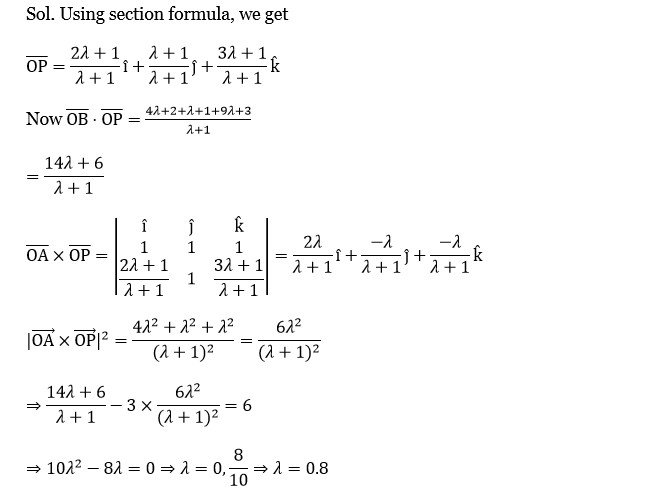Dot Product
Get insights from 4 questions on Dot Product, answered by students, alumni, and experts. You may also ask and answer any question you like about Dot Product
Follow Ask QuestionQuestions
Discussions
Active Users
Followers
New answer posted
5 months agoContributor-Level 10
|3a+4b|² = 9|a|² + 16|b|² + 24a·b
But a·b = 0, |a|=|b|=k
|3a+4b| = 5k
|4a-3b|
10k = 20? k = 2 = |a| = |b|
New answer posted
5 months agoContributor-Level 10
Given r * a = r * b, which means r * a - r * b = 0 ⇒ r * (a - b) = 0.
This implies that vector r is parallel to vector (a - b).
So, r = λ (a - b) for some scalar λ.
a - b = (2i - 3j + 4k) - (7i + j - 6k) = -5i - 4j + 10k.
So, r = λ (-5i - 4j + 10k).
We are also given r ⋅ (i + 2j + k) = -3.
λ (-5i - 4j + 10k) ⋅ (i + 2j + k) = -3
λ (-51 - 42 + 10*1) = -3
λ (-5 - 8 + 10) = -3
λ (-3) = -3 ⇒ λ = 1.
So, r = 1 * (-5i - 4j + 10k) = -5i - 4j + 10k.
We need to find r ⋅ (2i - 3j + k).
(-5i - 4j + 10k) ⋅ (2i - 3j + k) = (-5) (2) + (-4) (-3) + (10) (1)
= -10 + 12 + 10 = 12.
Taking an Exam? Selecting a College?
Get authentic answers from experts, students and alumni that you won't find anywhere else
Sign Up on ShikshaOn Shiksha, get access to
- 66k Colleges
- 1.2k Exams
- 686k Reviews
- 1800k Answers


